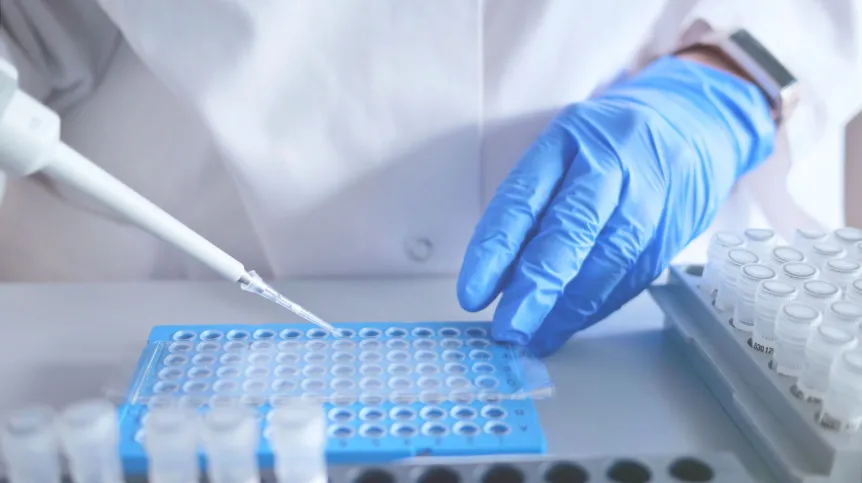
A team from the Jagiellonian University has described a peptide that may open the way to better cancer immunotherapy. The molecule works similarly to existing antibodies, but has additional advantages.
Immunotherapy is an innovative cancer treatment strategy that involves unlocking the patient's natural defence mechanisms. In 2018, the Nobel Prize in Medicine and Physiology was awarded for research in this field.
The idea behind immunotherapies is to stimulate immune cells to attack the cancer. Cancer cells can neutralize immune system cells, and therapy can trigger the immune response again.
In the prestigious journal Molecular Cancer, a team from the Jagiellonian University led by Dr. Katarzyna Magiera-Mularz describes a molecule (pAC65) that affects the immune system in this way.
This molecule, a macrolytic peptide, acts on immune cells in a similar way to some drugs already used in cancer immunotherapy, protecting immune cells against premature death. It similarly affects the reaction pathway known as PD-1/PD-L1.
However, compared to antibodies, macrolytic peptides penetrate various tissues better and are easier to administer to patients (for example, in the form of a nasal or lung spray).
The molecule in question was patented several years ago, but there were no studies that would properly describe its action and therapeutic potential. Now, using a variety of methods, scientists have described the three-dimensional structure of the molecule and the way it affects immune cells.
'In summary, pAC65 is the most potent non-antibody-based PD-1/PD-L1 interaction inhibitor published to date,’ the researchers write. They point out that the activity of the molecule is similar to that observed in FDA-approved monoclonal antibodies.
'The demonstrated bioactivity coupled with the absence of discernible toxicity, as well as the presence of a compound of similar nature - BMS986189 - in several preclinical studies, collectively position pAC65 as an ideal candidate for preclinical testing to verify its potential, safety and tolerability,’ they add.
Find out more on the website. (PAP)
Marek Matacz
mat/ bar/ kap/
tr. RL













